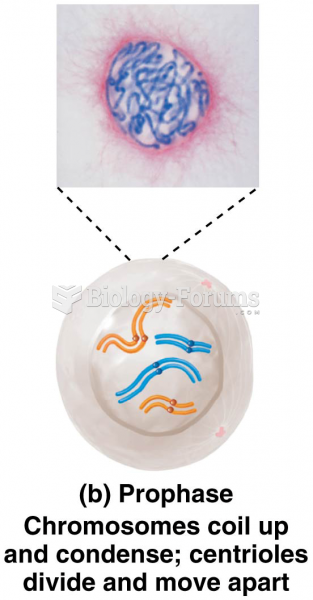|
|
|
Ether was used widely for surgeries but became less popular because of its flammability and its tendency to cause vomiting. In England, it was quickly replaced by chloroform, but this agent caused many deaths and lost popularity.
The U.S. Preventive Services Task Force recommends that all women age 65 years of age or older should be screened with bone densitometry.
The top five reasons that children stay home from school are as follows: colds, stomach flu (gastroenteritis), ear infection (otitis media), pink eye (conjunctivitis), and sore throat.
The first oral chemotherapy drug for colon cancer was approved by FDA in 2001.
Asthma-like symptoms were first recorded about 3,500 years ago in Egypt. The first manuscript specifically written about asthma was in the year 1190, describing a condition characterized by sudden breathlessness. The treatments listed in this manuscript include chicken soup, herbs, and sexual abstinence.
 A society’s dominant ideologies are reinforced throughout the society, including its literature. ...
A society’s dominant ideologies are reinforced throughout the society, including its literature. ...
 A Hall-effect sensor produces a digital on-off voltage signal whether it is used with a blade or a ...
A Hall-effect sensor produces a digital on-off voltage signal whether it is used with a blade or a ...





